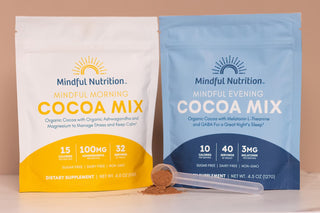Have you ever wondered whether your favorite food products were truly prepared in a clean environment?
That's where Good Manufacturing Practices, or GMP, come in.
Read on to learn more about how GMP facilities are helping consumers gain access to high-quality manufacturing, products, pharmaceuticals, and more.
Key takeaways
- GMP certification means that a manufacturer maintains GMP compliance, demonstrating a commitment to good manufacturing processes
- GMP-compliant manufacturing facilities undergo regular testing and monitoring to ensure quality assurance, adherence to safety standards, and other GMP processes
- Some industries that benefit from GMP regulations include the food, cosmetic, and pharmaceutical industries
See Related: How to Heat Milk For Hot Chocolate: 4 Ways
What is GMP?

GMP stands for "Good Manufacturing Practices", a system of guidelines and regulations that ensure quality control for various products across diverse industries.
A GMP compliant facility has undergone evaluation and testing to ensure they meet regulatory requirements across their entire operations processes — from the beginning of production to the completion of the finished product.
By prioritizing compliance, manufacturing facilities can continually improve their systems and operations, promoting a new level of trust among consumers. This can help businesses establish a strong reputation in their industry.
GMP industries
From food to makeup and medications, various industries benefit from adherence to GMP guidelines, processes, and GMP standards.
Whether through minimizing risks of product contamination, ensuring machinery meets the latest in safety standards, or protecting against safety issues like mislabeling, GMP regulations are ultimately designed to protect consumers.
Why is GMP important?
Quality assurance (QA) is important across all industries, but the stakes are even higher when it comes to food products, cosmetics, and medications.
While the U.S. Food and Drug Administration (FDA) establishes its own unique regulations that companies must adhere by, GMP facilities go a step further to ensure compliance from top to bottom across several important criteria.
GMP’s primary focus is to set basic quality standards, ensuring products meet quality standards and are manufactured under controlled conditions.
This means a GMP-compliant facility has been evaluated for the cleanliness and proper design of the facility, accuracy of documentation, proper equipment maintenance, and personnel training, among other regulatory actions.
Regular audits and frequent monitoring of these facilities can help keep manufacturers accountable for their operations.
Risks of non-compliance
GMP certification and compliance demonstrate an ongoing commitment to safety, which builds trust between companies and consumers. But what happens when companies fail to live up to their commitment to QA?
While maintaining GMP compliance can be a daunting task for manufacturers and other companies dealing with medical devices, raw materials, and other products, non-compliance can have consequences. These have the potential to severely impact a company's bottom line.
CGMP violations, for example, can have a negative impact on facilities, harming their reputation and leading to distrust among consumers. Recalls are another common, major risk that occurs within the food industry.
Good manufacturing practices can cost companies time, money, and manpower, but the benefits outweigh the costs for many.
Bonus: The Best Dairy-Free Hot Cocoa Mixes

Benefits of GMP compliance
Some benefits of maintaining GMP compliance include:
Contamination
QA systems can help reduce the risk of contamination or production errors.
Compliance is crucial in the food industry. According to the Centers for Disease Control and Prevention (CDC), foodborne illnesses sicken nearly 1 in 10 people globally. Not only can these illnesses present a major health and safety risk, but they can also cost businesses money due to potential lawsuits and other legal issues.
Maintaining consistency
Following QA measures can help a GMP complaint facility ensure consistency across the board. GMP-compliant manufacturing facilities aim to produce items that meet quality standards while also maintaining qualities like taste, appearance, and texture.
All of these are important when seeking to promote customer loyalty and satisfaction.
Cost savings
One of the many benefits of QA measures includes cost savings. QA reduces the risk of production waste and other costly compliance issues, such as recalls by the Food and Drug Administration (FDA).
Overall, QA can help improve operational efficiency by streamlining processes, maximizing existing resources, and promoting the scalability of production and processes.
Encouraging adaptability
Another significant benefit of GMP compliance is the opportunity for companies to practice adaptability. By continually reviewing and improving current processes, businesses are able to evolve and continue to meet customers’ ever-changing expectations.
What is the difference between GMP and cGMP?
GMP and cGMP (Current Good Manufacturing Practices), while similar, place emphasis on different things. While GMP provides a baseline for QA, cGMP goes further to continually update these practices.
From keeping up with the latest technologies to staying up to date with frequently updated regulations, cGMP can be seen as more engaged and dynamic than GMP, with each carrying different expected results.

What are the 10 principles of GMP?
The ten principles of a GMP-compliant facility center around safety, reliability, and consistency. To promote these, GMP calls for:
- Establishing written procedures: Processes that have the potential to impact product quality should be broken down into clear, step-by-step instructions, forming a standard operating procedure (SOP). This formal system can help manufacturing facilities maintain compliance by meeting GMP requirements.
- Adhering to procedures: Personnel should be monitored by a GMP quality team to ensure they are adhering to written procedures. These written procedures can encompass a broad set of procedures, dealing with anything from step-by-step instructions for machinery to how to handle customer complaints.
- Process validation: Process validation and verification of equipment and quality raw materials on a regular basis ensure manufacturers are able to produce quality standards under GMP requirements.
- Proper Documentation: A facility must maintain detailed record-keeping of company activities, which ensures compliance with GMP standards and regulatory requirements. Adequate record keeping makes company operations traceable, which promotes accountability.
- Equipment and facility design: Facilities and equipment handling should be designed to support consistent product quality and reduce the risk of cross-contamination.
- Maintenance of facilities: Manufacturing facilities should ensure equipment and facilities are properly maintained to prevent machinery failure and minimize errors.
- Personnel competency: Promote crucial training among a cross-functional team and monitor staff skills so that manufacturing personnel have the capabilities to perform tasks safely and effectively.
- Reduce the risk of contamination: Maintain strict environmental controls, processing methods, and hygiene practices to further reduce the risk of contamination and maintain FDA compliance.
- Prioritize quality: Integrate quality control measures and promote testing procedures across all stages of the manufacturing process, not just the finished product.
- Conducting internal audits: Conducting internal audits, such as a regular GMP audit or even surprise internal audits, helps manufacturing facilities maintain compliance. This allows them to then, with minimum requirements, identify opportunities and determine areas of improvement.

Many industries have been made safer and more efficient with the introduction of GMP regulations and processes. Some companies aim to partner with GMP facilities to ensure their products are crafted to the highest safety standards and regulations.
Conclusion
Compliance is extremely important across the manufacturing industry, even more so when dealing with medical devices, food, and other critical products.
Manufacturers hoping to achieve long-term success should pay close attention to their internal processes, ensuring each facet of their operational systems are built with the safety and satisfaction of the consumer in mind.
At Mindful Nutrition, we use third-party testing and strict quality procedures to deliver products that meet high standards for purity and consistency. Whether you want a beverage to add to your bedtime routine, or a magnesium hot cocoa supplement, we've got you covered. Take a sip, enjoy, and savor, feeling the warmth and flavor pour through your soul.
Keep Reading: Hot Drinks Do More Than Keep You Warm: Benefits of Warm Drinks
--
Mindful Nutrition is a veteran-owned company with a passion for wellness. We use natural ingredients in our products, including melatonin, GABA, ashwagandha, and L-Theanine. Our hot cocoa blends are vegan, non-GMO, and plant-based, crafted to be a comforting addition to your daily ritual. We utilize third-party testing on all products to ensure purity, quality, and safety. To stay connected and learn more, follow us on Facebook, Instagram, and LinkedIn.
--
These statements have not been evaluated by the Food and Drug Administration. Our products are not intended to diagnose, treat, cure, or prevent any disease. The content on this website is for informational purposes only and is not intended as a substitute for advice from your physician or other healthcare professional. Always consult with a qualified healthcare provider regarding any medical condition or health concerns.















